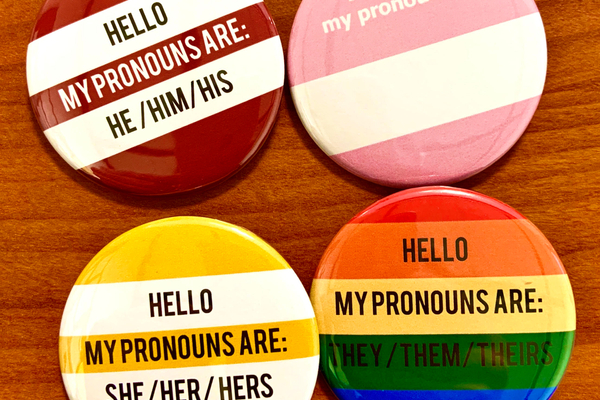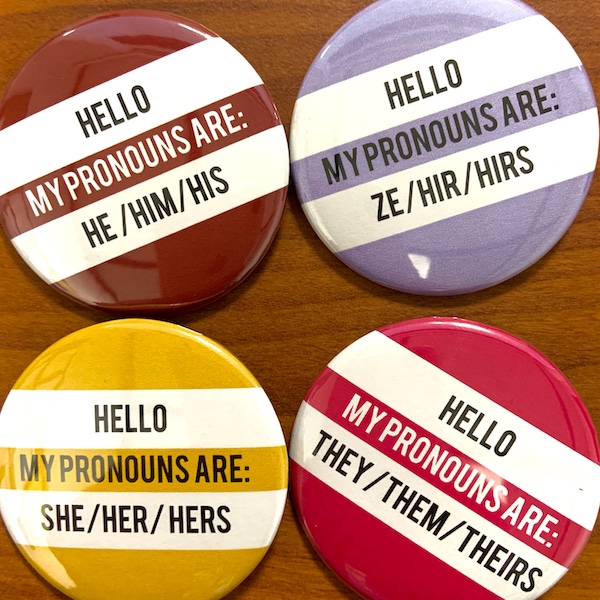3 Tips for Using Pronouns from a Women's & Gender Studies Professor

By Jennifer Alvey, Ph.D.
UM-Flint College of Arts & Sciences
You can't always tell by looking at someone or even knowing their name what their pronouns are. But not using a person's pronouns or misidentifying a person can really hurt them, make them feel embarrassed, ashamed, or invisible, and make them feel excluded.
We're living in a world in which the many ways of being and doing our gender/s are rapidly changing. And, we're living in a time and place where there are many different kinds of public discussions about this. New ways of including all people are emerging right before our eyes! It's exciting. But also, a little scary.
For people who never really think about pronouns (you know: think consciously about them) and for people who've never really experienced being misidentified or ignored repeatedly, over and over again, it can be somewhat confusing, even startling, to think about pronouns. It can feel nerve-wracking, like, "what if I get it wrong?" Or, "I'm not even really sure what pronouns are or if I know how to use them!" But, it becomes really easy once you try!
In recognition of International Pronouns Day, here are three tips to help you feel informed and confident when it comes to the pronouns of yourself and others.
Share your pronouns
A great thing to do is to pick what your pronouns are, and then try to get in the habit of sharing them. Imagine you are wearing a name tag….write your name, and under it, write your pronouns. Try introducing yourself to new people like that, too (for instance: Hi, my name is Joe, and my pronouns are he, his, him). Then maybe include it on your email signature, or social media bio, too. Just by using your own pronouns, you are signaling to people around you that you might be open to their pronouns; that you are willing to try, at least; and that you want to validate all people and help create inclusive spaces for everyone.
Ask others about their pronouns
Another thing you can do is ask people what their pronouns are and try to use them. You can ask the same person more than once, too, as we all can forget or get confused. But, it would help if you apologize for forgetting and say something like "I'm trying to remember your pronouns, or can you remind me again what your pronouns are," that way, you don't give a person the impression that you are trying to "mess" with them or are making fun of them.
There's support on campus
Last thing – faculty and staff at the University of Michigan-Flint can select pronouns through Wolverine Access. Students can select their pronouns through the Student Information System (SIS). The Center for Gender & Sexuality has step-by-step instructions on its intranet page. Additional support can be found through CGS LGBTQIA+ Coordinator Hilary Wermers (hwermers@umich.edu).
UM-Flint offers a 15-credit certificate or 21-credit minor in Women's & Gender Studies. These programs prepare students to become knowledgeable about and conscious of women's lives and gender processes in all facets of their lives.
Related Posts
No related photos.
- Center for Gender and Sexuality
- College of Arts, Sciences & Education
- Student Affairs
- Women's & Gender Studies
UM-Flint News
The Office of Marketing & Communications can be reached at mac-flint@umich.edu.
